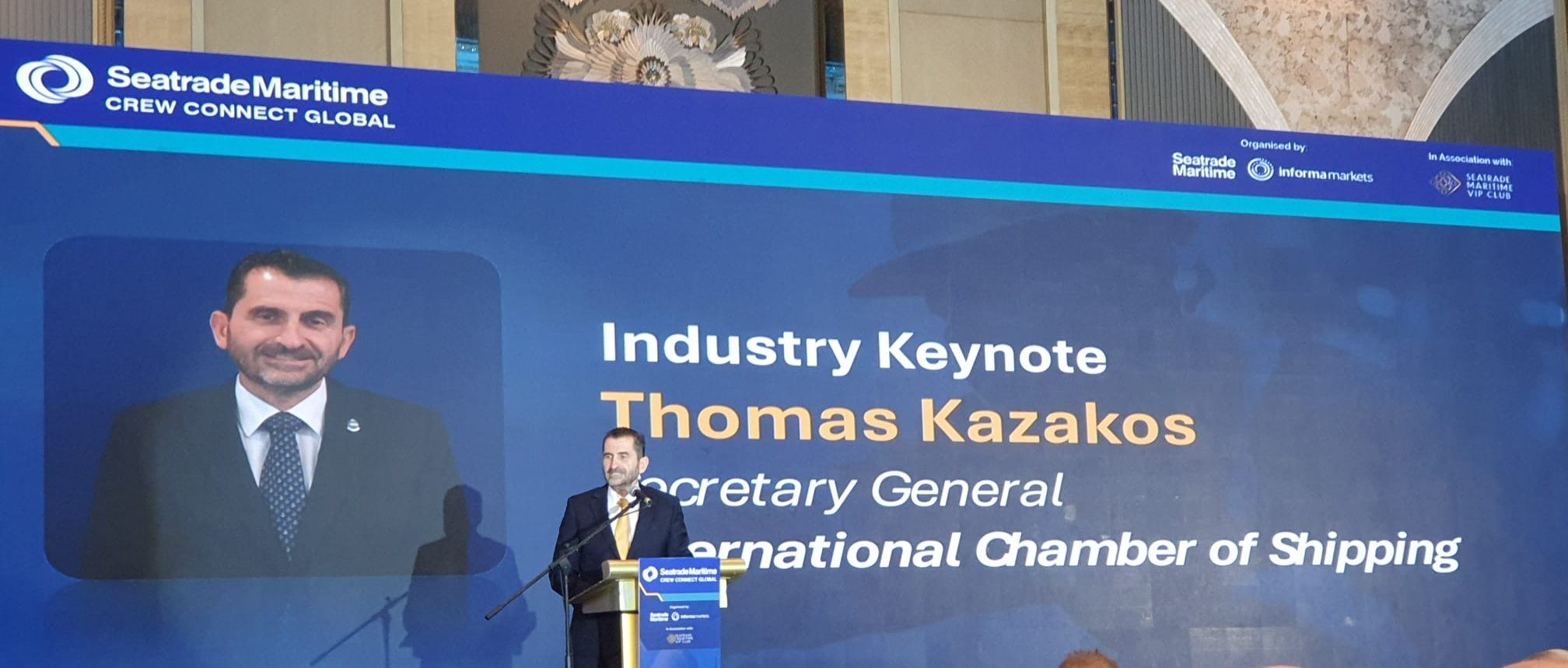The shipping sector’s transition must strengthen education, skills, and human capital, leaving no one behind, said International Chamber of Shipping (ICS) secretary general Thomas Kazakos, as Greece and India boost cooperation under IMEC.
The relationship between the two countries is gaining strategic weight at a moment of major reorganisation in global shipping.
IMEC, which aims to link India with Europe through the Middle East and the Mediterranean, is positioning Greece as a central Mediterranean hub, with Piraeus and Thessaloniki expected to play a stronger role in regional cargo flows.
Bilateral trade reached $1.9 billion in the 2022–2023 fiscal year and is projected to rise to $7.6 billion by 2030.
At the same time, India is investing heavily in port infrastructure, digitalisation, green technologies and maritime education, while Greece remains the world’s largest shipping nation, controlling about 20 per cent of global tonnage.
According to Danae Bezantakou, CEO of Navigator Shipping Consultants and Vice President of the International Propeller Club, Port of Piraeus, Greek ports can capitalise on this momentum.
She noted that Piraeus already operates as an international logistics hub, while Thessaloniki moved 16.78 million tonnes of cargo and roughly 520,000 TEU in 2023.
In her words, these ports now support “the new generation of commercial and maritime activities”, helping Greece attract foreign investment and consolidate its position on the IMEC map.
Bezantakou travelled to Mumbai for India Maritime Week, describing the event as a showcase of more than 500 exhibitors from 85 countries and investment projects worth over $120bn.
She said the exhibition brought together governments, shipowners, ports, technology providers and training institutions at a time when South Asia’s maritime economy is expanding rapidly.
At the centre of discussions was IMEC’s potential to shift trade routes. A recent ELIAMEP analysis, she said, found that Piraeus “complements the IMEC routes” and strengthens Greece’s appeal for strategic investors.
Greek companies’ presence in India, she added, forms part of a broader attempt to link infrastructure, education and sustainability, which she sees as the three levers of competitiveness.
During her visit, Bezantakou also spoke at the Maritime SheEO Conference, a global platform for women’s leadership in shipping with 2,000 participants and representatives from more than 50 countries.
She was the only Greek speaker, focusing on women’s leadership, youth empowerment, lifelong learning and sustainability. Referring to the next generation, she said that “mentoring is our strongest ship for the future”.
The conference confirmed that a Memorandum of Understanding (MoU) between YES Forum and Maritime SheEO will be signed at Posidonia 2026, aimed at increasing opportunities for women through mentoring, training and knowledge exchange.
Bezantakou further emphasised the introduction of a maritime course in the 6th and 3rd grades in Greece, using material from her book ‘Pros Thalassa meria’ to offer younger students an early, practical entry into the maritime world.
Her mission to Mumbai also included a visit to T.S. Rahaman, India’s oldest maritime training establishment.
The 116-year-old institution sits on a 23-acre campus near Mumbai and trains officers, engineers and cadets through workshops, bridge simulators and hands-on programmes.
One initiative that stood out was the “Women in Rating” scheme, launched in 2023 and already enrolling 84 young women from remote regions, with scholarships from companies including Maersk, BW, Synergy and Anglo Eastern.
Bezantakou described the experience as “unique”, adding that students were “literally building their future from the keel”.
Throughout her meetings, she argued that Greek shipping’s international standing is tied not only to technology and investment, but also to education and the social dimension of the maritime profession.
As she put it, “the development of ports and terminals must incorporate technologies from the very beginning that will ensure the future, digitalisation, sustainability and gender equality”.






Click here to change your cookie preferences